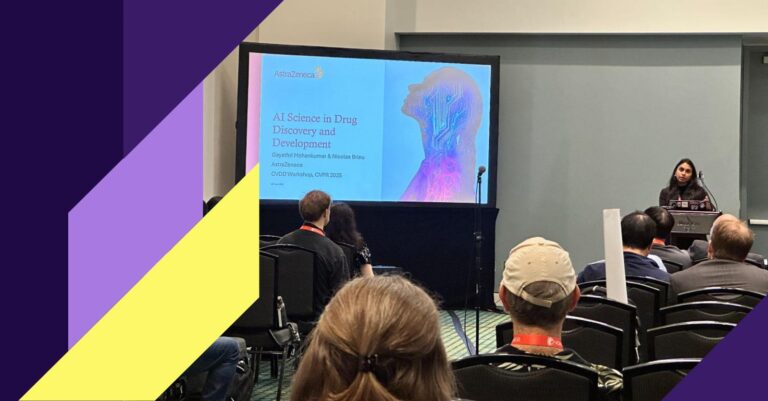Conventional anticancer drugs were designed based on the rapid division of tumor cells. However, the malignant transformation is not the only reason for intense proliferation and the collateral damage done to normal cells results in adverse side effects which can even decrease the overall survival. Thus cytotoxic agents are notoriously hard to get through clinical trials resulting in about 95% attrition rates for these drugs [1].
In recent years scientists realized that these successful antineoplastic agents can, in fact, exert their actions not in the way that they were initially planned to. It seems that the effectiveness of chemotherapy may not rely purely on destruction of malignant cells but also involve the drug’s ability to stimulate tumor-specific immune responses in the process [1–3]. The recognition of how powerful weapon we have within ourselves inspired the introduction of experimental therapies specifically aiming at aiding our natural defences in their fight against cancer. However, due to the complexity of the immune system, it took numerous failed attempts before the true revelation finally came with immune checkpoint inhibitors (ICIs). The spectacular results of ICIs in clinical trials and practice prompted the shift in a way anticancer agents are designed and the era of immunotherapies began [4].
Unfortunately, no antineoplastic regimen is effective for every patient and immunotherapies are no exception. Also, with immunotherapies, just like with any other tumor-targeting drug, there is always a risk of adverse reactions [5]. Currently, a lot of effort is being put into deciphering what makes a person respond to a certain therapy and how to alleviate side effects that these treatments entrail. Emerging from these studies is the realization that there are more pieces to the cancer puzzle than were anticipated. In fact, going from concentrating only on malignant cells to including the whole tumor microenvironment with leukocytes may still not be enough and we should really be looking at even bigger, meta-organismal, picture. That is because the evidence is now piling up placing gut bacteria in the limelight in the context of both cancer prevention and treatment [6].
Immune systems are shaped and constantly kept on their toes by microorganism they come into contact with. Apparently having the proper microbial trainers maintaining the fitness of our immune system can be decisive in case of antineoplastic therapy outcomes. Studies in mice revealed that just by modifying the gut flora efficacy of an ICI treatment can be significantly improved [7, 8]. Moreover, the effectiveness of some chemotherapies and even radiotherapy have been shown to be microbiota-dependent [9-11]. Consequently, usage of antibiotics during therapy may influence its outcome [6, 12-14]. Importantly, the influence of gut bacteria on responsiveness to immunotherapies have also been recently confirmed in cancer patients [14-19]. Furthermore, the microorganisms living in one’s intestines may also tone down or aggravate the immunotherapy side effects [8, 18-20].
Those discoveries entailed commercial attempts at improving therapy outcomes with microflora modifications. As those are starting to prove successful in preclinical models more and more companies are springing up aiming at introducing microbiota-based therapies into the clinic [21-23]. Moreover, the revolution is not just about cancer as the microbiome seem to have connections with many different aspects of human health, ranging from gastrointestinal conditions to autism and depression [24, 25]. This inspires a vast range of experimental therapies including fecal microbial transplant (FMT), defined bacterial consortia or monostrains and bacteriophages as well as microbiota-related small molecules. Majority of these treatments comprise the new kind of medicines, named live biotherapeutic products (LBP), which are composed of living microorganisms used for “prevention, treatment, or cure of a disease or condition of human beings”. As they come with unique scientific and regulatory challenges the FDA was prompted to introduce guidelines dedicated to them [26]. Admittedly first LBP is yet to be approved for sale but this seems just a matter of time taking into consideration that there are some candidates already in phase 3 and many more in earlier stages of clinical trials [27, 28].
At the moment, the answer to the question about the future of oncology seems to revolve around boosting tumor-specific immunity. Training our immune system on what it evolved to understand best feels natural and proves to have great potential. Thus, soon microbiota modulation can likely be an important weapon in our arsenal in the fight against cancer.
Works Cited:
[1] L. Zitvogel, L. Galluzzi, M. J. Smyth, and G. Kroemer, “Mechanism of action of conventional and targeted anticancer therapies: reinstating immunosurveillance,” Immunity, vol. 39, no. 1, pp. 74–88, Jul. 2013.
[2] L. Bracci, G. Schiavoni, A. Sistigu, and F. Belardelli, “Immune-based mechanisms of cytotoxic chemotherapy: implications for the design of novel and rationale-based combined treatments against cancer,” Cell Death Differ., vol. 21, no. 1, pp. 15–25, Jan. 2014.
[3] L. Galluzzi, A. Buqué, O. Kepp, L. Zitvogel, and G. Kroemer, “Immunological Effects of Conventional Chemotherapy and Targeted Anticancer Agents,” Cancer Cell, vol. 28, no. 6, pp. 690–714, Dec. 2015.
[4] T. Shekarian, S. Valsesia-Wittmann, C. Caux, and A. Marabelle, “Paradigm shift in oncology: targeting the immune system rather than cancer cells,” Mutagenesis, vol. 30, no. 2, pp. 205–211, Mar. 2015.
[5] J. M. Michot et al., “Immune-related adverse events with immune checkpoint blockade: a comprehensive review,” Eur. J. Cancer, vol. 54, pp. 139–148, Feb. 2016.
[6] V. Gopalakrishnan, B. A. Helmink, C. N. Spencer, A. Reuben, and J. A. Wargo, “The Influence of the Gut Microbiome on Cancer, Immunity, and Cancer Immunotherapy,” Cancer Cell, vol. 33, no. 4, pp. 570–580, 09 2018.
[7] A. Sivan et al., “Commensal Bifidobacterium promotes antitumor immunity and facilitates anti-PD-L1 efficacy,” Science, vol. 350, no. 6264, pp. 1084–1089, Nov. 2015.
[8] M. Vétizou et al., “Anticancer immunotherapy by CTLA-4 blockade relies on the gut microbiota,” Science, vol. 350, no. 6264, pp. 1079–1084, Nov. 2015.
[9] S. Viaud et al., “The intestinal microbiota modulates the anticancer immune effects of cyclophosphamide,” Science, vol. 342, no. 6161, pp. 971–976, Nov. 2013.
[10] N. Iida et al., “Commensal bacteria control cancer response to therapy by modulating the tumor microenvironment,” Science, vol. 342, no. 6161, pp. 967–970, Nov. 2013.
[11] S. Roy and G. Trinchieri, “Microbiota: a key orchestrator of cancer therapy,” Nat. Rev. Cancer, vol. 17, no. 5, pp. 271–285, May 2017.
[12] L. Zitvogel, R. Daillère, M. P. Roberti, B. Routy, and G. Kroemer, “Anticancer effects of the microbiome and its products,” Nat. Rev. Microbiol., vol. 15, no. 8, pp. 465–478, Aug. 2017.
[13] B. A. Helmink, M. A. W. Khan, A. Hermann, V. Gopalakrishnan, and J. A. Wargo, “The microbiome, cancer, and cancer therapy,” Nat. Med., vol. 25, no. 3, p. 377, Mar. 2019.
[14] L. Derosa et al., “Negative association of antibiotics on clinical activity of immune checkpoint inhibitors in patients with advanced renal cell and non-small-cell lung cancer,” Ann. Oncol. Off. J. Eur. Soc. Med. Oncol., vol. 29, no. 6, pp. 1437–1444, Jun. 2018.
[15] B. Routy et al., “Gut microbiome influences efficacy of PD-1-based immunotherapy against epithelial tumors,” Science, vol. 359, no. 6371, pp. 91–97, Jan. 2018.
[16] V. Gopalakrishnan et al., “Gut microbiome modulates response to anti-PD-1 immunotherapy in melanoma patients,” Science, vol. 359, no. 6371, pp. 97–103, 05 2018.
[17] V. Matson et al., “The commensal microbiome is associated with anti-PD-1 efficacy in metastatic melanoma patients,” Science, vol. 359, no. 6371, pp. 104–108, 05 2018.
[18] A. E. Frankel et al., “Metagenomic Shotgun Sequencing and Unbiased Metabolomic Profiling Identify Specific Human Gut Microbiota and Metabolites Associated with Immune Checkpoint Therapy Efficacy in Melanoma Patients,” Neoplasia N. Y. N, vol. 19, no. 10, pp. 848–855, Sep. 2017.
[19] N. Chaput et al., “Baseline gut microbiota predicts clinical response and colitis in metastatic melanoma patients treated with ipilimumab,” Ann. Oncol., vol. 28, no. 6, pp. 1368–1379, Jun. 2017.
[20] Y. Wang et al., “Fecal microbiota transplantation for refractory immune checkpoint inhibitor-associated colitis,” Nat. Med., vol. 24, no. 12, pp. 1804–1808, Dec. 2018.
[21] D. L. Lauté-Caly et al., “The flagellin of candidate live biotherapeutic Enterococcus gallinarum MRx0518 is a potent immunostimulant,” Sci. Rep., vol. 9, no. 1, p. 801, Jan. 2019.
[22] T. Tanoue et al., “A defined commensal consortium elicits CD8 T cells and anti-cancer immunity,” Nature, vol. 565, no. 7741, p. 600, Jan. 2019.
[23] J. Sceneay et al., “Abstract LB-283: Leveraging gut microbiota networks to impact tumor immunotherapy,” Cancer Res., vol. 78, no. 13 Supplement, p. LB-283-LB-283, Jul. 2018.
[24] J. A. Gilbert, M. J. Blaser, J. G. Caporaso, J. K. Jansson, S. V. Lynch, and R. Knight, “Current understanding of the human microbiome,” Nat. Med., vol. 24, no. 4, pp. 392–400, Apr. 2018.
[25] M. Valles-Colomer et al., “The neuroactive potential of the human gut microbiota in quality of life and depression,” Nat. Microbiol., vol. 4, no. 4, p. 623, Apr. 2019.
[26] “Early Clinical Trials with Live Biotherapeutic Products: Chemistry, Manufacturing, and Control Information; Guidance for Industry,” p. 20.
[27] “Microbiota Restoration Therapy for Recurrent Clostridium Difficile Infection (PUNCHCD3) – Full Text View – ClinicalTrials.gov.” [Online]. Available: https://clinicaltrials.gov/ct2/show/NCT03244644. [Accessed: 30-Apr-2019].
[28] “ECOSPOR III – SER-109 Versus Placebo in the Treatment of Adults With Recurrent Clostridium Difficile Infection – Full Text View – ClinicalTrials.gov.” [Online]. Available: https://clinicaltrials.gov/ct2/show/NCT03183128. [Accessed: 30-Apr-2019].




